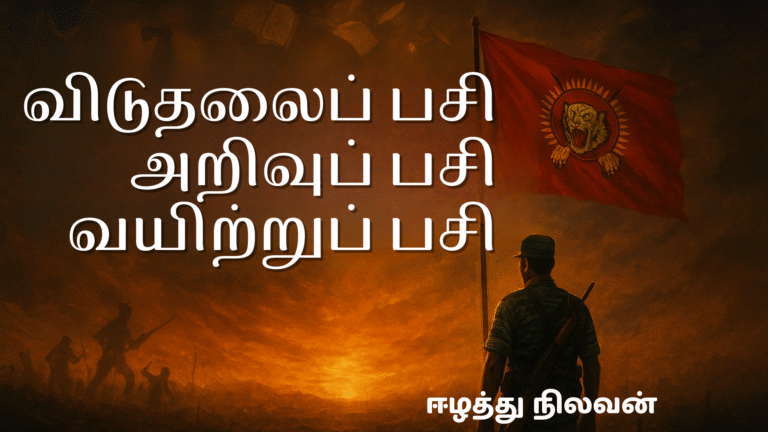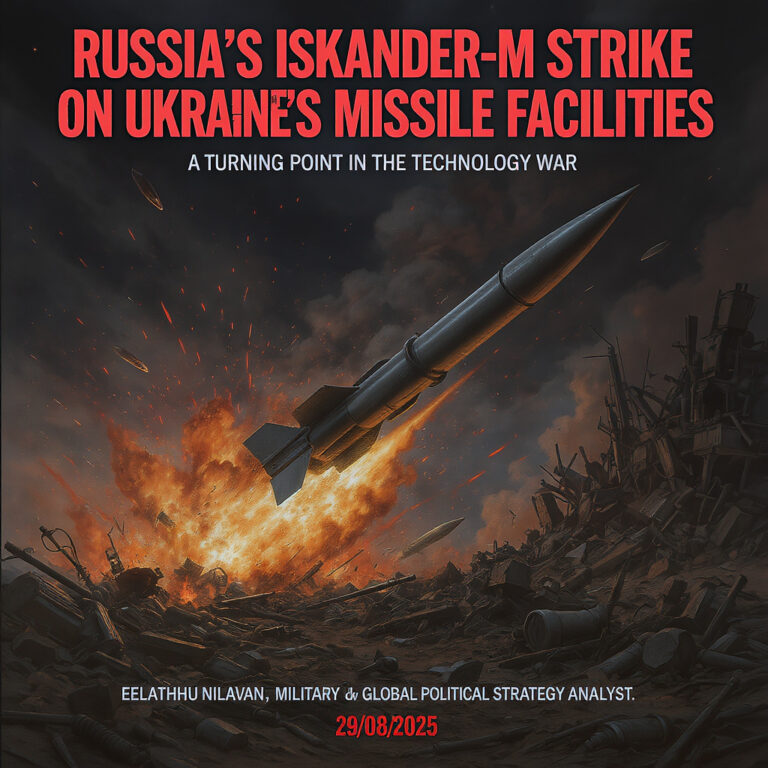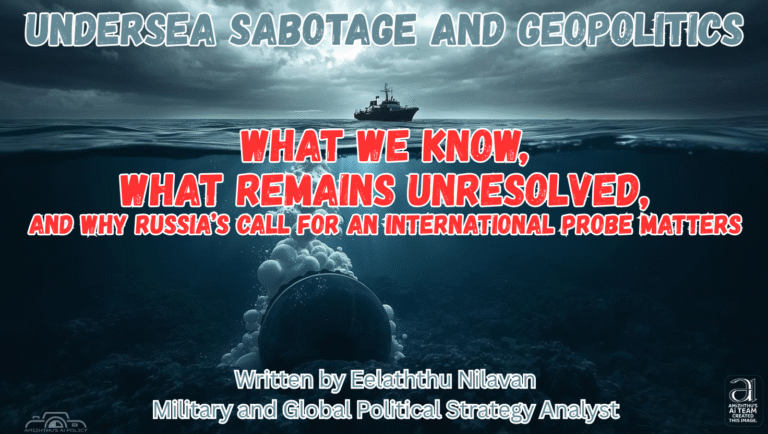
A Call to the International Community for Justice and Accountability.
During the recent visit of United Nations High Commissioner for Human Rights, Mr. Volker Türk, to Sri Lanka, activists from the Solidarity Movement for North East People Struggle submitted a powerful appeal highlighting the ongoing, unresolved crisis faced by the Tamil, Muslim, and Malaiyaha communities in the island’s North and East. Despite decades of international awareness, the letter asserts that meaningful global intervention remains absent, allowing impunity, discrimination, and militarised oppression to persist.

This article provides a deeper analysis of the urgent issues raised in the appeal, outlining the systemic nature of violations and the necessity of international pressure to ensure justice, accountability, and dignity for affected communities.
✦. Systematic Human Rights Violations
The Tamil population continues to endure widespread human rights abuses, including custodial killings, torture, arbitrary arrests, and prolonged detentions without trial. These violations are not isolated; they reflect a structural pattern of state repression, often shielded by emergency laws such as the Prevention of Terrorism Act (PTA), which the United Nations has repeatedly condemned as incompatible with international human rights standards.
✦. Militarisation and Surveillance State
Fifteen years after the civil war’s formal end, the Northern and Eastern provinces remain under intense military occupation, with tens of thousands of soldiers stationed disproportionately in Tamil areas. This militarisation is not defensive—it serves as a tool of political control and ethnic domination. Civilians face constant surveillance, interference in daily life, and psychological pressure, especially around sensitive dates such as Mullivaikkal Remembrance Day.
✦. State-Sponsored Land Grabbing
Under the guise of conservation, archaeology, or development, the state has facilitated the appropriation of land from Tamil farmers and families. Government departments such as the Wildlife, Archaeological, and Forest Departments are frequently complicit, functioning as vehicles for demographic re-engineering. These actions not only displace communities but also erase Tamil historical and cultural presence in their traditional homelands.
✦. Illegal Structures and Demographic Engineering
The construction of unauthorised Buddhist viharas and Sinhala settlements in Tamil-majority areas continues unabated. Often state-backed, these projects alter the demographic and religious landscape, a phenomenon widely condemned as part of a Buddhisation agenda. This trend seeks to impose a mono-ethnic, mono-religious identity over a historically multi-ethnic, multi-religious region, further alienating minority communities from the Sri Lankan state.
✦. Denial of Justice for War Crimes and Genocide
The lack of accountability for wartime atrocities, particularly those committed during the final phase of the civil war in 2009, remains the core wound of the Tamil nation. Despite overwhelming evidence—including UN reports—there has been no credible investigation or prosecution. The survivors continue to demand justice for what they describe as genocide, yet are met with denial, deflection, or silence from the Sri Lankan government and international community alike.
✦. Enforced Disappearances
Sri Lanka has one of the highest rates of enforced disappearances in the world. Over 60,000 people, mostly Tamils, have vanished. Families of the disappeared have protested for over 2,000 days in the North and East, demanding answers. Their pain is compounded by the government’s failure to provide truth, reparations, or even acknowledgment, deepening a cycle of grief and injustice.
✦. Unresolved Plight of Political Prisoners
Hundreds of Tamil political prisoners remain incarcerated, often without charge or fair trial, some detained for over a decade. The PTA has been used not to counter terrorism, but to criminalise dissent and Tamil political identity. Despite promises of reform, detainees continue to suffer under inhumane conditions, with little hope of legal redress.
✦. Suppression of Tamil Political Expression
Freedom of speech, assembly, and political expression are heavily curtailed in Tamil areas. Activists, students, journalists, and families of the disappeared face harassment, surveillance, and intimidation. Events commemorating the dead or demanding accountability are routinely blocked or criminalised, creating an environment where truth-telling itself is an act of resistance.
✦. Discrimination in Language Rights
Although Tamil is officially recognised as a national language, its implementation remains superficial and discriminatory. From government documents to court proceedings, from road signs to access to public services, Tamil speakers are often neglected or marginalised, reinforcing a sense of second-class citizenship.
✦. Chemmani Mass Grave and the Demand for Truth
The Chemmani mass grave, discovered in the aftermath of the war, is one of many potential sites of atrocity. The Sri Lankan Government’s failure to ensure proper exhumation, identification, and accountability further underscores a broader culture of impunity. Without truth, there can be no reconciliation.
❖.Call to Action: A Role for the International Community
The Solidarity Movement urged Commissioner Türk and the broader international community to act decisively. Their proposals include:
Tying Aid to Human Rights Benchmarks: Conditioning financial aid and development support on the Sri Lankan government’s willingness to end rights violations and deliver justice.
Support for International Resolutions: Encouraging states to pass UNHRC and UNGA resolutions demanding international investigations into war crimes, crimes against humanity, and genocide.
Platforming Victim Communities: Ensuring that Tamil voices are heard at international forums, and their historical grievances are addressed with sincerity and substance.
❖Conclusion:
Sri Lanka’s post-war narrative has too often been shaped by denial, militarism, and Sinhala majoritarianism, leaving its minority populations, especially Tamils, without redress. The letter to Commissioner Türk is not just a list of grievances—it is a plea for justice, dignity, and recognition.
The international community can no longer afford to be a silent witness. Justice delayed is justice denied, and every day without action deepens the suffering of communities still haunted by war, displacement, and silence.
❖ Eelaththu Nilavan ❖
25/06/2025
The views expressed in this article are the author’s own and do not necessarily reflect Amizhthu’s editorial stance.




